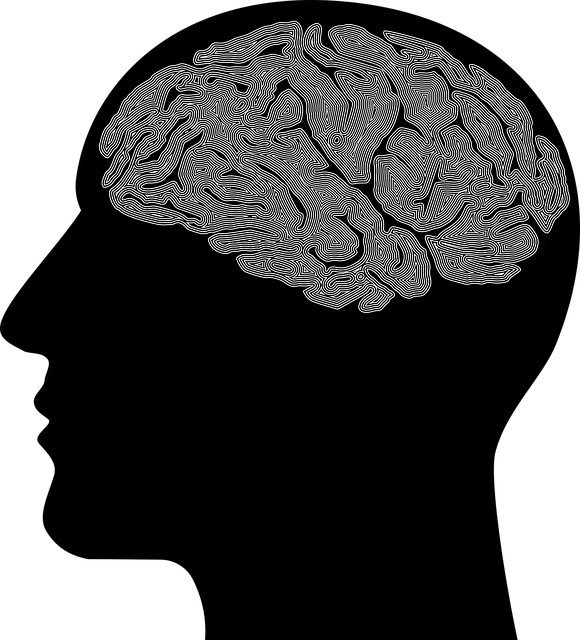The Kaiser Permanente behavioral health center in Highlands Ranch employs a multi-faceted approach to evaluate mental wellness initiatives, combining quantitative (surveys, data analysis) and qualitative (interviews, focus groups) methods. They assess participant satisfaction, clinical outcomes, and behavioral changes, focusing on inner strength development and resilience building. Guided mental wellness journaling exercises provide valuable insights alongside traditional metrics. This holistic strategy ensures programs like Mental Wellness Journaling remain relevant, effective, and tailored to the community's evolving mental health needs, leveraging diverse perspectives for inclusive and impactful initiatives.
Mental wellness program evaluations are pivotal in measuring the effectiveness of initiatives aimed at improving mental health outcomes. This article explores various evaluation methods employed by the Kaiser Permanente Behavioral Health Center Highlands Ranch, from quantitative data analysis and qualitative research techniques to participatory approaches. By understanding program impact through diverse metrics and fostering continuous improvement, the center ensures its mental wellness programs remain evidence-based and responsive to community needs.
- Understanding Program Impact: Evaluation Metrics for Mental Wellness Initiatives at Kaiser Permanente Behavioral Health Center Highlands Ranch
- Participatory Approaches: Involving Community Members in Program Assessment
- Qualitative Research Techniques: Uncovering Insights Through Interviews and Focus Groups
- Quantitative Data Analysis: Measuring Outcomes and Trends with Surveys and Statistics
- Continuous Improvement: Iterative Evaluation for Enhancing Mental Wellness Programs
Understanding Program Impact: Evaluation Metrics for Mental Wellness Initiatives at Kaiser Permanente Behavioral Health Center Highlands Ranch

At Kaiser Permanente Behavioral Health Center Highlands Ranch, evaluating the impact of mental wellness initiatives is a multifaceted process aimed at understanding and enhancing program effectiveness. The center employs various metrics to assess the success of its programs, focusing on key aspects such as participant satisfaction, clinical outcomes, and behavior changes. This holistic approach ensures that the services provided not only meet but exceed expectations in fostering inner strength development and resilience building.
One effective evaluation method involves mental wellness journaling exercises guided by professionals. This practice allows participants to reflect on their emotional well-being, track progress, and identify areas for improvement. By combining qualitative data from these journals with quantitative measures like reduced symptom severity and improved coping mechanisms, the center gains valuable insights into the program’s overall impact. Such insights enable continuous improvement in services, ensuring that programs like Mental Wellness Journaling Exercise Guidance remain relevant and beneficial to those seeking support at Kaiser Permanente Behavioral Health Center Highlands Ranch.
Participatory Approaches: Involving Community Members in Program Assessment

Involving community members in program assessment is a powerful participatory approach that has gained prominence in mental wellness initiatives, particularly at Kaiser Permanente behavioral health centers like the one in Highlands Ranch. This method recognizes the inherent value of diverse perspectives and experiences when evaluating healthcare services. By engaging community members, including individuals from various demographic backgrounds and those with lived experience in mental health, assessment processes become more inclusive and nuanced.
Such participation can significantly enhance risk assessment for mental health professionals by offering insights into cultural considerations, social determinants of health, and unique barriers to care within the community. This collaborative approach not only improves the accuracy of stress management strategies but also fosters emotional intelligence among practitioners, ensuring they are equipped to address complex client needs effectively.
Qualitative Research Techniques: Uncovering Insights Through Interviews and Focus Groups

Qualitative research techniques, such as interviews and focus groups, play a vital role in evaluating mental wellness programs at centers like the Kaiser Permanente behavioral health center in Highlands Ranch. These methods allow for deep exploration of participants’ experiences, perspectives, and feelings regarding various initiatives aimed at enhancing well-being. Through open-ended conversations and group discussions, valuable insights can be gained into individuals’ understanding of concepts like positive thinking and self-esteem improvement, which are key areas of focus in many mental health promotion campaigns.
Interviews provide a more personal setting to uncover nuanced details, while focus groups facilitate the exchange of ideas and experiences within a community context. By employing these qualitative approaches, researchers can better appreciate the impact of programs on different demographics, identify barriers to participation, and explore ways to enhance engagement. This knowledge is crucial for refining strategies in public awareness campaigns development and ensuring that mental wellness initiatives meet the unique needs of the community served by centers like Kaiser Permanente in Highlands Ranch.
Quantitative Data Analysis: Measuring Outcomes and Trends with Surveys and Statistics

Quantitative data analysis plays a pivotal role in evaluating mental wellness programs, offering a structured approach to measure outcomes and identify trends within populations served by institutions like the Kaiser Permanente behavioral health center in Highlands Ranch. Surveys distributed to participants before and after program engagement collect valuable information on various aspects of mental health, including symptoms of anxiety and depression, stress levels, and overall life satisfaction. By employing statistical techniques, researchers can quantify changes over time, allowing for a comprehensive understanding of program effectiveness.
For instance, the Kaiser Permanente behavioral health center in Highlands Ranch might track reductions in Depression Prevention program participants’ depressive symptoms as measured by standardized scales. This data analysis enables comparisons between different interventions and facilitates the identification of successful strategies, such as those focusing on Emotional Intelligence and Empathy Building Strategies, which have shown promise in enhancing mental wellness outcomes.
Continuous Improvement: Iterative Evaluation for Enhancing Mental Wellness Programs

At the Kaiser Permanente behavioral health center Highlands Ranch, they understand that mental wellness programs need to evolve and adapt to best serve their community. Continuous improvement is a key aspect of their approach, utilizing iterative evaluation methods to enhance services over time. By regularly assessing program effectiveness, they can identify areas for growth and make data-driven adjustments. This ensures that the offerings remain relevant and impactful, catering to the changing needs of individuals seeking support for their mental health.
The process involves collecting feedback from participants through various means, including Mental Wellness Journaling Exercise Guidance and Self-Care Practices workshops. Additionally, tracking key performance indicators related to Depression Prevention allows them to gauge success rates and pinpoint areas where additional resources or strategies might be beneficial. This ongoing cycle of evaluation and refinement is crucial in optimizing the program’s impact and fostering a healthier, more resilient community.
Evaluating mental wellness programs is a multifaceted process that requires a combination of quantitative and qualitative methods. By utilizing metrics, surveys, interviews, and focus groups, organizations like the Kaiser Permanente Behavioral Health Center Highlands Ranch can gain valuable insights into program impact and community needs. This iterative evaluation approach enables continuous improvement, ensuring that mental wellness initiatives remain effective and tailored to the specific requirements of the population served.






